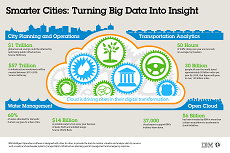November 5, 2013
It’s not all about BYOD; data security also remains a low-tech issue
 While firms worry about the loss of data through the practice of BYOD, employees continue to find low tech ways of breaching security according to a report from Iron Mountain. While under half (42 percent) of employees describe their organisation’s approach to hard copy as secure, one in ten describe it as chaotic. Nearly half claim to have seen confidential information lying around in the usual places such as on desks or photocopiers. The most common types of information exposed in this way are details of salaries and performance reviews as well as commercial and financial data, although many will remember the scandal that broke two years ago when Government minister Oliver Letwin (above) repeatedly dumped classified information in a park bin including some about Al Qaeda, Libya, Afghanistan, the Dalai Lama and Aung San Suu Kyi.
While firms worry about the loss of data through the practice of BYOD, employees continue to find low tech ways of breaching security according to a report from Iron Mountain. While under half (42 percent) of employees describe their organisation’s approach to hard copy as secure, one in ten describe it as chaotic. Nearly half claim to have seen confidential information lying around in the usual places such as on desks or photocopiers. The most common types of information exposed in this way are details of salaries and performance reviews as well as commercial and financial data, although many will remember the scandal that broke two years ago when Government minister Oliver Letwin (above) repeatedly dumped classified information in a park bin including some about Al Qaeda, Libya, Afghanistan, the Dalai Lama and Aung San Suu Kyi.























November 5, 2013
Technology fix. What employers can do when social media becomes an addiction
by Pam Loch • Comment, Legal news, Technology, Workplace
Recent research shows that technology has helped us to become nearly five times more productive than we were in the 1970s. As well as enabling social interaction and personal expression, social media such as LinkedIn and Twitter can be valuable business aids for innovation and collaboration. However, with over half of people under 25 admitting they have to check Facebook at least once a day, it’s clear that for many, social media has become more than a form of virtual engagement. This can create something of an issue in the workplace, leaving employers with the dilemma of balancing the positive aspects of online communications while discouraging time wasting. (more…)